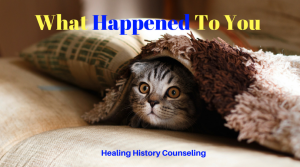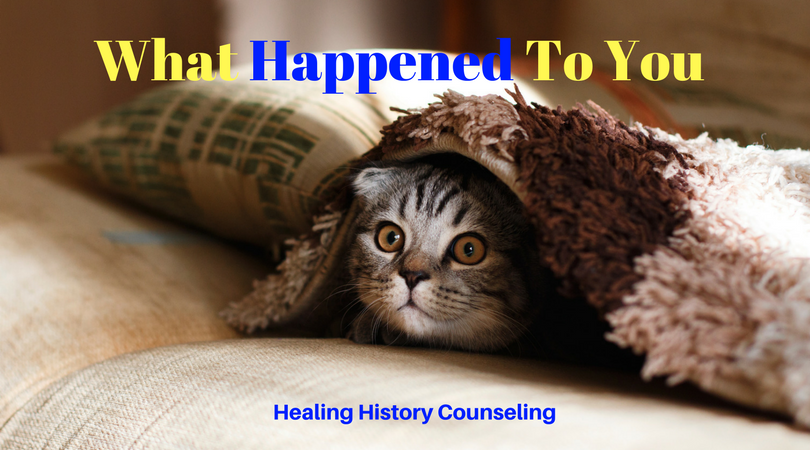

More about ACEs and Trauma Informed Care
Did Oprah’s short report last night on the impact of childhood trauma leave you wanting more information? Did you miss the 60 Minutes episode but would like to learn more about the topics that Oprah called life changing? This week’s blog is on the two key aspects that were covered in the 60 Minutes report by Oprah: ACEs and Trauma Informed Care.
ACEs: Adverse Childhood Experiences study
Some people argue that focusing on your past is a waste of time and energy. You can’t change your past, so why go to therapy to stir it all up? But here’s the problem with leaving the past in the past – it’s not just in your past. Research shows that those awful events in your childhood can impact your relationships, your mental well-being, and even your physical health throughout your adult life too.
Studies have shown that experiencing Adverse Childhood Experiences (ACEs) can have a profound impact on your whole life. There are three categories of ACEs: Abuse, neglect, and household dysfunction. So, let’s clarify what types of events exactly we are talking about.
Adverse Childhood Experiences
- Physical Abuse: This is the physical injury of a child that is not an accident.
- Emotional Abuse: Treating a child in such a way that there is a negative impact on their emotional or psychological well-being.
- Sexual Abuse: Exposing a child to sexually explicit materials, situations, or interactions.
- Physical Neglect: Failing to provide for the basic needs of the child: Food, shelter, medical care, safety, etc.
- Emotional Neglect: Failing to provide appropriate emotional support to a child.
- Divorce: Having parents who are divorced has been shown to have a negative impact on an individual
- Addiction: Having someone in your childhood home who has an addiction problem.
- Domestic Violence: Growing up in a home where the is violence between the adult caregiving couple.
- Mental Illness: Having someone in your childhood home who has uncontrolled or poorly controlled mental health issues.
- Incarceration: Having a family member who spends time in jail, prison or some other form of detention.
Now, many people can check off one or two of these negative childhood experiences. In fact, they found that 64% of people had experienced at least 1 ACE during their childhood and 22% had experienced three or more ACEs while growing up. As the number of ACEs that a person experienced as a child increases so does their risk for a whole host of diverse negative outcomes. For example, take smoking: 1 in 16 people with 0 ACES smokes, but 1 in 9 people with 1-3 ACEs smokes and 1 in 6 people with 4 or more ACEs smokes. That’s about a three times more likely to smoke with 4 or more ACEs than with 0 ACEs. The likelihood of suicide attempts increase by almost 20 times between 0 and 4+ ACEs.
Possible Negative Outcomes that correlate to experiencing ACEs
- Stroke
- Cancer
- Obesity
- Smoking
- Diabetes
- Heart disease
- Broken bones
- Suicide attempts
- Alcohol and drug use
- Higher levels of missed work
- Sexually transmitted diseases
- More mental health challenges
- Unhealthy lack of physical activity
- Increased difficulty with healthy relationships
- Chronic Obstructive Pulmonary Disease (COPD)
- Early death
So, how does having Adverse Childhood Experiences lead to heart disease and even early death? One explanation is that ACE’s negatively impact physical, mental and emotional development. Which leads to impairment in these areas. Which leads to adoption of higher risk behaviors. Which increases the likelihood of sickness, disability, and social problems and this in turn increases the likelihood of early death.
But experiencing ACE’s does not doom a child to an adulthood of difficulty, sickness and early death. Early intervention in multiple areas of the child’s life has been shown to have the best outcome, which is where Trauma Informed Care comes into the picture.
Trauma Informed Care
The idea behind Trauma Informed Care is that to effectively treat someone who has experienced traumatic events (such as those in the ACE studies) it’s best when all the different areas of society that interact with that individual works from a place of understanding that traumatic experiences are often at the root of many of the person’s problems. In essence, shifting the focus from “what’s wrong with them” to “What’s happened to them”. Primarily this is currently being implemented with children, and the level of implementation varies drastically from community to community. The idea is that the child who has experienced trauma receives the direct services they need to heal and recover. Their caregivers and other family members also receive the support they need. That schools, social services, health care, the court system and police etc. are all working from a place of compassion and helping the child to heal. Using this coordinated and systemic approach can have a drastically positive impact on the healing of that child.
There are several different models for Trauma Informed Care. Some models focus more on the organizational and systemic implementation of Trauma Informed Care while others focus more or the providing of services.
The core concepts of Trauma Informed Care
- Interpreting behavior with consideration of the impact of past traumatic experiences
- Creating safety and building trust
- Empowerment and collaboration
- Resiliency and strengths-based approach
- Being inclusive and sensitive to the racial, cultural, historical, sexual and gender issues.
- Intentionally fostering an organizational culture of ongoing progress and improvement
- Supporting the staff to prevent burn-out and maintain high quality services and care.
Combining the systemic and compassionate approach of Trauma Informed Care with our understanding of the lifelong impact of Adverse Childhood Experiences can change how we experience other people’s behaviors and can even be personally life changing, as Oprah reports it has been for her.
I am a therapist in Austin Texas. I specialize in helping adults heal from difficult childhoods, childhood trauma, CSA (Childhood Sexual Abuse), sexual assault, PTSD (Post Traumatic Stress Disorder), and cPTSD (complex PTSD). Contact me to schedule your free 30-minute, in person, consultation to discuss how healing from the impact of your ACEs can have a positive impact on your current life.
The 60 Minutes piece and the additional online content
This is where I got the information for my definitions of abuse and neglect.
Leave a Reply